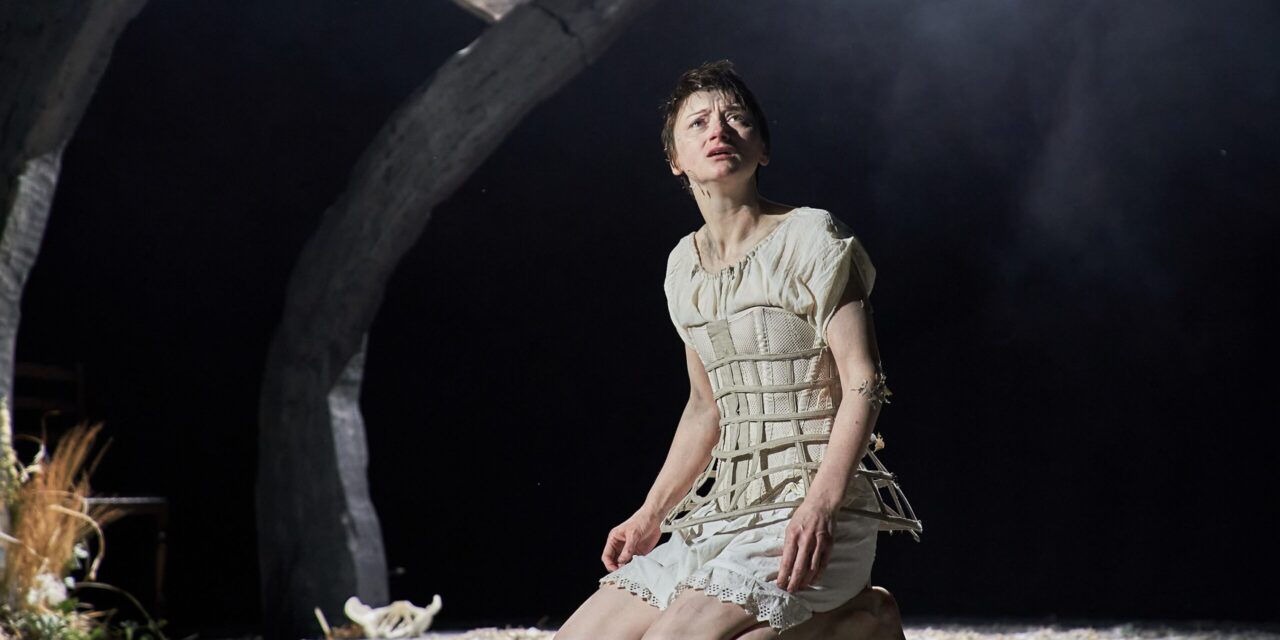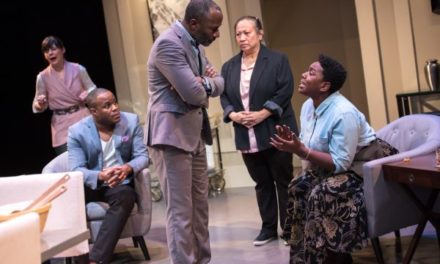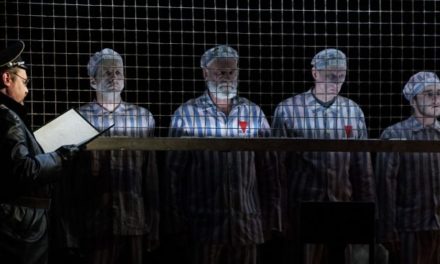Could diabolical interference be the only way for a woman in 17th-century London to advance in life without being bound to a man? For Joanna Faustus, the answer is in the affirmative. So she goes and strikes a bargain with Lucifer, delivering her soul to him in exchange for the right to claim mastery over her own person and over time.
In Faustus: That Damned Woman, Chris Bush presents a staunchly feminist adaptation of the Faust myth—one in which the eponymous antihero has become a century-hopping female scientist. Her pursuit is only partially about knowledge in the abstract. What triggers Faustus’ satanic turn is her desire to vindicate her mother’s name and wreak vengeance on those who executed her years ago for witchcraft. Then comes Faustus’ determination to establish her autonomy and become a doctor to the world, with Mephistopheles as her nursemaid.
Jumping forward in time, she paves her road to hell with good intentions—a road that stretches from the London of the Great Fire to a post-apocalyptic wasteland in the distant future. Along the way, she meets Elizabeth Garrett Anderson—the first woman to qualify as a physician in Britain—and Marie Curie. In what appears to be the present day, she has her own biotech institute, where she seeks to find immortality through digital mind-mapping.
Bush has written a play that does not shy away from turning into a feminist history lesson. Though it asks significant questions about the perceived relationship between female ambition and madness, and about what it takes for a woman to claim her self-sovereignty, this take on the Faust myth proves more interested in reiterating familiar answers. Accordingly, its epic scale is more aspirational than functional: Faustus may glide through decades on a whim (à la Virginia Woolf’s Orlando) and take us on a seemingly wild journey, but the range of her concerns and frustrations remains relatively narrow.
As Faustus, Jodie McNee finds in this larger-than-life character both strands of coherence and spasmodic glimpses into the unknown. She is particularly good at conveying Faustus’ evolving confidence in her demonic position and the changing nature of her ambition. Director Caroline Byre brings out strong supporting performances from Danny Lee Wynter (a playfully subservient Mephistopheles) and Emmanuella Cole (an assured Dr. Garrett).
A cone-like cave, designed by Ana Inés Jabares-Pita, smartly accommodates the play’s shifts in time and place, while Ian William Galloway’s projected videos alternate between adding a layer of abstraction and providing contextual clues. There are some sleek achievements in Richard Howell’s lighting and Giles Thomas’ sound design, though certain moments could have been further fine-tuned. Many aspects of the design, along with Byre’s fine ensemble, help sustain what turns out to be a dramaturgically uneven play—doing their best to iron out its wrinkles and mend its tears.
With its overlong scenes, stylistic twitches, and occasionally clotted language, Faustus: That Damned Woman is not in its best form. Still, one can’t help but respect what Bush is trying to do with this feminist intervention into a male-dominated dramatic tradition. Female rage, we are shown, has a right to raise hell.
This post was written by the author in their personal capacity.The opinions expressed in this article are the author’s own and do not reflect the view of The Theatre Times, their staff or collaborators.
This post was written by Mert Dilek.
The views expressed here belong to the author and do not necessarily reflect our views and opinions.


















